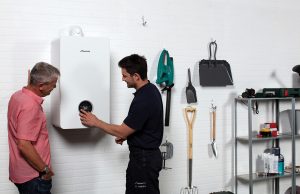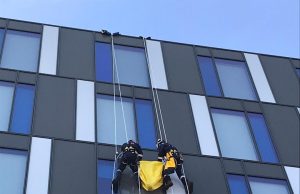
The COVID-19 global health emergency has been hard on businesses of all sizes, breaking down industry barriers and worsening trading conditions almost universally. Despite a fairly negative outlook across the board, there can be little argument that the entertainment industry has been disproportionately affected by the pandemic.
With the UK government working towards what Prime Minister Boris Johnson has described as “significant normality” by Christmas, the nation’s nightclubs and soft play areas instead face ruin following indefinite closure and a wholesale lack of support from the authorities.
As businesses across the UK begin to welcome customers after 2020’s mandatory hiatus, what’s really happening behind the closed doors of our oh-so-missed nightclubs and indoor play facilities?
When can nightclubs and soft play centres reopen?
That’s the £70 billion question – quite literally too, because that’s how much Britain’s night-time industry generates for the economy each year. Without even accounting for the many millions of pounds earned by children’s indoor play centres, it’s clear that the UK’s physical entertainment providers offer an undeniable benefit to society – and yet they now find themselves unable to open and with no indication of when they might be permitted to kickstart their comeback.
Despite the Prime Minister paying lip service to our night-time and playtime economy, his July announcement that theme parks and outdoor play areas could reopen contained a sad affirmation that nightclubs and indoor play areas would remain closed. With other leisure venues given the green light to reopen from 1 August, how can our favourite night-time haunts and rainy-day child entertainment saviours hope to survive?
Indoor leisure’s unique challenges
Although it’s disheartening to hear the news (or lack thereof) about the reopening of nightclubs and soft play areas, there are legitimate reasons for the government’s stance. Both clubs and children’s indoor play centres are based on close-up social interaction – something that is plainly incompatible with socially distant life.
From pulsing dance floors flooded with cheerful clubgoers to the padded landings of soft play facilities awash with excited children, it’s very difficult to impose strict hygiene standards at leisure venues which thrive on interpersonal contact. Some might argue that non-essential shops, pubs and cinemas operate on a similar basis to nightclubs and that there should be parity between the measures affecting these venues – but the truth is that shoppers don’t generally congregate in ball pits and pub-goers are now subject to a comprehensive regime of COVID-secure rules.
One proposal floated to nightclub and play centre operators has been to reopen with a limited capacity that allows for socially distant fun. Whilst this might solve the issues keeping the venues closed, however, it is not necessarily viable and arguably contends with the social purpose of such businesses. In addition, many constituents of the night-time and playtime economies depend on the sheer scale of their visitor numbers to survive financially – and so the added costs of coronavirus safety measures coupled with decreased revenues from lower visitor numbers could prove fatal.
What can nightclub and play centre operators do?
As there has been no hint of when these businesses may be permitted to welcome back patrons, it follows that many industry-insiders are reluctant to take any potentially costly action. A considerable portion of the UK’s nightclub and play centre operators have understandably consigned themselves to an extended period away from trading and are quite sensibly conserving the funds needed to survive rather than investing them back into their premises.
For those who do feel that they have the mental bandwidth and resources to make adjustments in anticipation of a future reopening date, there’s lots that can be done to make your business an attractive destination even despite social distancing guidelines reigning in on the fun. Installing guard-like screens at touchpoints between staff and customers could help you to bring a sense of safety to your premises, whilst installing contactless-enabled card machines such as the state-of-the-art devices offered by UTP Group will bring your payment solutions up to date in a safe and convenient way.
Ultimately the aim of the game is to reduce physical contact between the people who come onto your premises. With some pubs having to close their doors within just weeks of reopening due to the attendance of a COVID-19 positive patron, it is absolutely critical for nightclub and soft play centre operators to put rigorous policies in place to mitigate the new risks brought about by coronavirus.
Restoring recreation
The restrictions imposed on the UK’s indoor leisure industry are undoubtedly frustrating, but they are in place for a good reason and few would deny that it’s better to be safe than sorry. The nation’s dancers, drinkers and clubgoers are desperate to return to nights of fun after an extended period of lockdown isolation, whilst many parents will be delighted to get some respite by taking their children to a soft play centre as soon as they reopen. The custom is there, and so provided that our businesses are ready and raring to go as soon as they are allowed, there’s no reason why we can’t revive the leisure industry.













